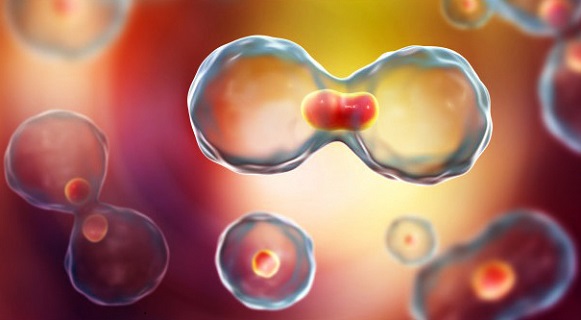COVID-19 Virus Found Capable of Infecting Human Neural Stem Cells, Raising Fears for Fetal Brain Development
Nikhil Prasad Fact checked by:Thailand Medical News Team Nov 11, 2025 3 months, 1 week, 5 days, 13 hours, 8 minutes ago
Medical News: SARS-CoV-2 Can Directly Invade Developing Brain Cells
A groundbreaking new study by scientists from the University of California Riverside has revealed that the SARS-CoV-2 virus can infect human neural stem cells, raising serious concerns about its potential effects on fetal brain development during pregnancy. These findings suggest that the virus may act as a neuroteratogen—an agent capable of disrupting the formation of the nervous system in unborn babies.
 COVID-19 Virus Found Capable of Infecting Human Neural Stem Cells, Raising Fears for Fetal Brain Development
COVID-19 Virus Found Capable of Infecting Human Neural Stem Cells, Raising Fears for Fetal Brain Development
The research team, led by Dr. Ann Song, Cori Zuvia, and Dr. Prue Talbot from the Department of Molecular, Cell, and Systems Biology and the Department of Neuroscience at UC Riverside, demonstrated that neural stem cells (NSCs)—the cells that later develop into brain and nerve tissues—are highly vulnerable to infection by both the original and Omicron variants of SARS-CoV-2. According to this
Medical News report, this discovery highlights an alarming possibility that even mild COVID-19 infections in pregnant mothers could lead to subtle, long-term effects on the neurological health of their children.
How the Virus Enters and Infects Developing Brain Cells
The researchers used pseudotyped viral particles mimicking both the wild-type and Omicron variants to safely study viral behavior in a laboratory setting. They found that Omicron variants, in particular, preferred to enter neural stem cells through a process called endocytosis—a mechanism in which the cell engulfs external material. When endocytosis was blocked using specific inhibitors such as filipin and OcTMAB, viral infection levels dropped dramatically, suggesting a possible therapeutic pathway for preventing infection.
In addition, the study found that the protective layer on the surface of the cells, known as the glycocalyx, plays a key role in viral resistance. Cells with lower levels of glycosylation were more easily infected, while enzymatic removal of these sugar molecules made the cells even more susceptible. This means that neural stem cells—which naturally have a thinner glycocalyx—are particularly exposed to viral entry compared to other cell types derived from different embryonic layers.
Implications for Fetal Development and Pregnancy
The findings suggest that the developing brain may be far more vulnerable to SARS-CoV-2 infection than previously understood. Since neural stem cells are responsible for generating neurons and other key components of the brain and nervous system, infection during early pregnancy could theoretically lead to long-term neurological problems.
Earlier studies have already shown evidence of vertical transmission—the virus passing from mother to fetus through the placenta. The UC Riverside researchers warn that infection during the earliest stages of pregnancy might cause developmental abnormalities th
at are not visible at birth but could manifest later as cognitive or behavioral impairments.
Potential for Therapeutic Interventions
Interestingly, two drugs—filipin and OcTMAB—were found to effectively block the infection process in neural stem cells. Filipin interferes with cholesterol-rich regions in the cell membrane that the virus uses for entry, while OcTMAB disrupts the endocytic pathway. Both compounds significantly reduced viral invasion across all variants tested. This opens up possibilities for developing preventive treatments aimed at reducing infection risk in expectant mothers exposed to SARS-CoV-2.
Why This Discovery Matters
The study underscores the urgent need for ongoing monitoring of infants and children born to mothers infected with COVID-19 during pregnancy. Although no major birth defects have been linked directly to SARS-CoV-2 so far, subtle neurodevelopmental issues—such as delays in learning, attention, or memory—could emerge over time. With increasing reports of neurological symptoms in adults suffering from long COVID, scientists believe the same mechanisms could disrupt fetal neural development.
Ultimately, the study strengthens concerns that SARS-CoV-2 is not just a respiratory virus but a multisystem pathogen capable of targeting the nervous system, including the developing brain. It calls for more research on how viral exposure during pregnancy affects brain development and urges public health authorities to prioritize surveillance of children born to infected mothers.
The study findings were published on a preprint server and are currently being peer reviewed.
https://www.biorxiv.org/content/10.1101/2025.11.10.687698v1
For the latest COVID-19 news, keep on logging to Thailand
Medical News.
Read Also:
https://www.thailandmedical.news/articles/coronavirus
